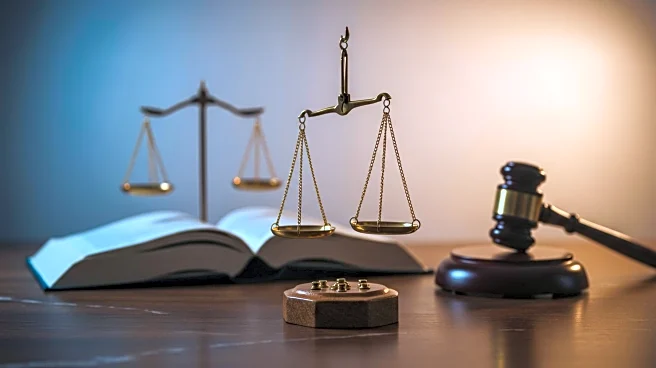What is the story about?
What's Happening?
The International Criminal Court (ICC) has expressed strong disapproval of new U.S. sanctions imposed on its judges and prosecutors. The sanctions target two judges and two prosecutors involved in investigations against U.S. and Israeli citizens. The U.S. Secretary of State Marco Rubio accused the ICC of being a 'national security threat' and an 'instrument of lawfare' against the U.S. and Israel. France has joined the ICC in denouncing the sanctions, which affect judges from Canada, Fiji, Senegal, and France. The sanctions prevent these officials from accessing or benefiting from any property or interests in the U.S.
Why It's Important?
The sanctions represent a significant diplomatic rift between the U.S. and the ICC, potentially undermining international judicial cooperation. The move could impact the ICC's ability to function independently and impartially, as it faces accusations of politicization and judicial overreach. The sanctions may also affect the ICC's credibility and its role in prosecuting war crimes and crimes against humanity. The U.S. decision has drawn criticism from international human rights organizations and could influence global perceptions of U.S. commitment to international law and justice.
What's Next?
The ICC is likely to continue advocating for the removal of sanctions, seeking support from member states and international organizations. The U.S. may face diplomatic pressure to reconsider its stance, especially from allies who support the ICC's mission. The situation may lead to further discussions on the balance between national sovereignty and international judicial authority. The ICC's response and potential legal actions could shape future interactions between the court and the U.S., influencing international legal frameworks and cooperation.


















